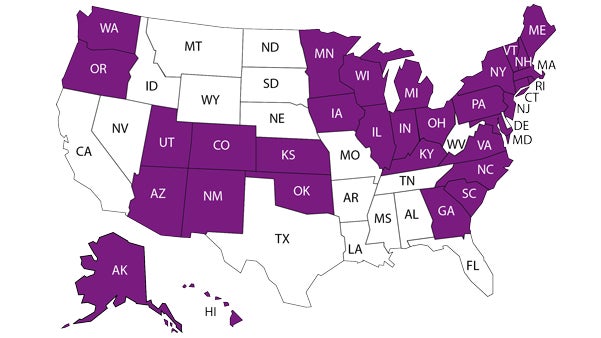CDC expands violent death-tracking database to Pa.
Listen
The Centers for Disease Control and Prevention is expanding its violent death-tracking database to Pennsylvania. (Image courtesy of cdc.gov)
Violent deaths in Pennsylvania will now be under increased scrutiny.
The Centers for Disease Control and Prevention is pouring $7.5 million into expanding “the National Violent Death Reporting System” to include more states — Pennsylvania among them. The NVDRS tries to give states and communities a better understanding of violent deaths, so officials can make smart choices about prevention efforts.
Expanding the system — from 18 to 32 states — could help save lives, said Janet Blair of the CDC.
“The system has information about the victims as well as the alleged perpetrators,” she said. “The system also has information about the circumstances preceding the violent death.”
The goal is to eventually expand the system further — to include all 50 states. New Jersey is already part of the system. Delaware has not been included in the current expansion.
The system collects information from death certificates, coroner and medical examiner reports, and law enforcement in an effort to create a comprehensive picture about why the deaths are occurring. The fatal incidents span the gambit from suicide to domestic violence.
Anton Moore is president and founder of Unity in the Community, a violence prevention organization that covers South and Southwest Philadelphia. To cut violence, he said, more focus is needed on the streets — rather than using an analytical approach “behind closed doors.”
“If you’re out there on the streets talkin’ to the people and engaging the people, it gives you a sense, an idea, of what’s going on in the community,” he said.
It’s important to work on violence reduction and build relationships with the families of young people he said cause much of the violence in his community, Moore said.
WHYY is your source for fact-based, in-depth journalism and information. As a nonprofit organization, we rely on financial support from readers like you. Please give today.

